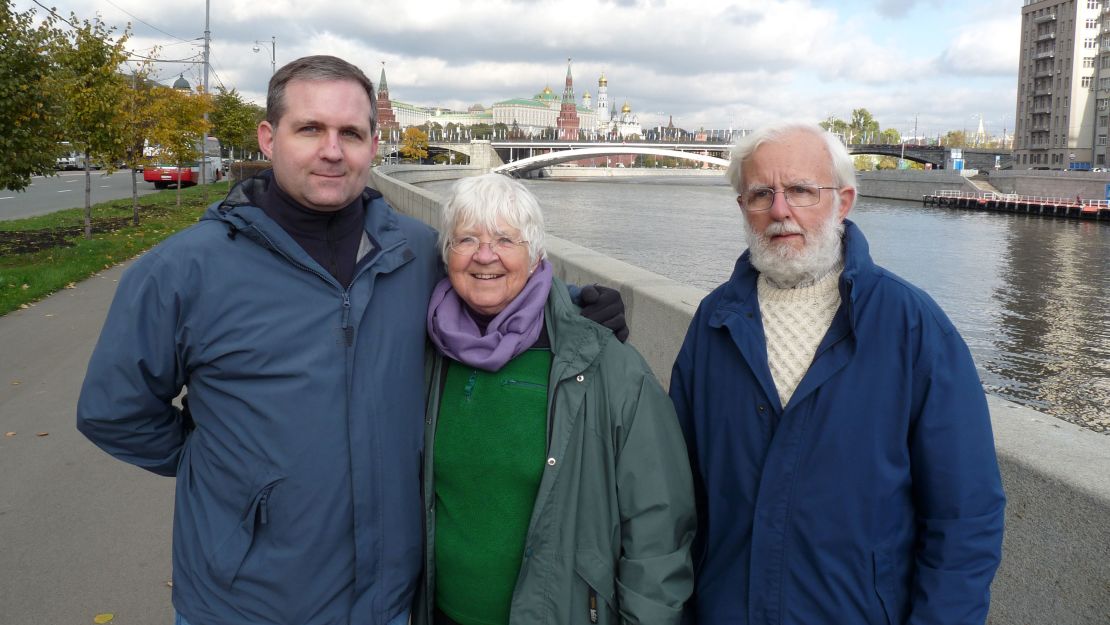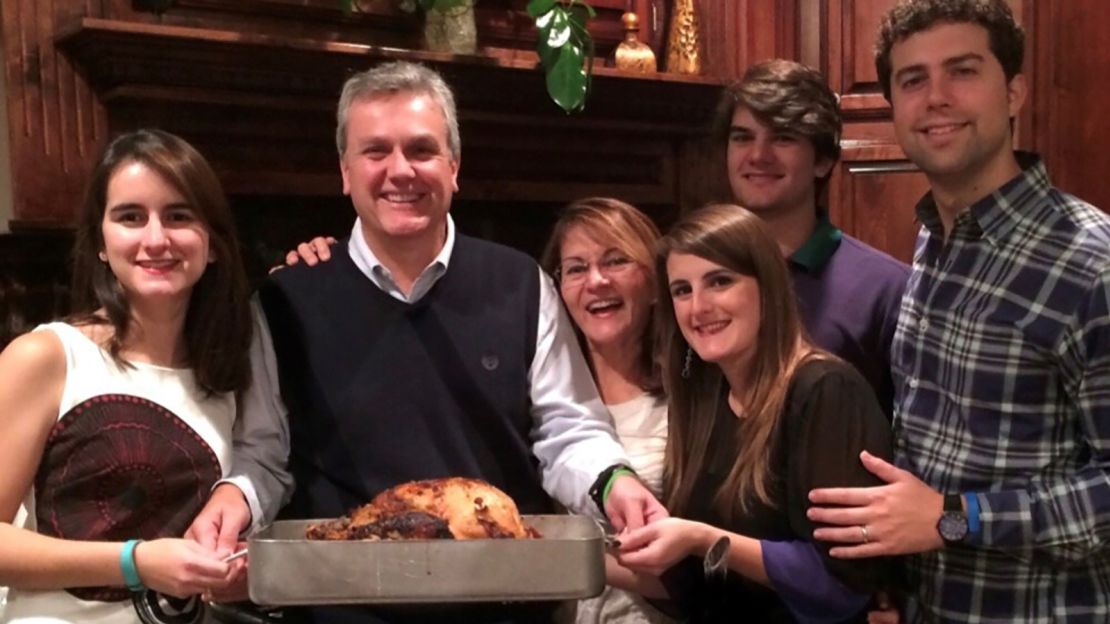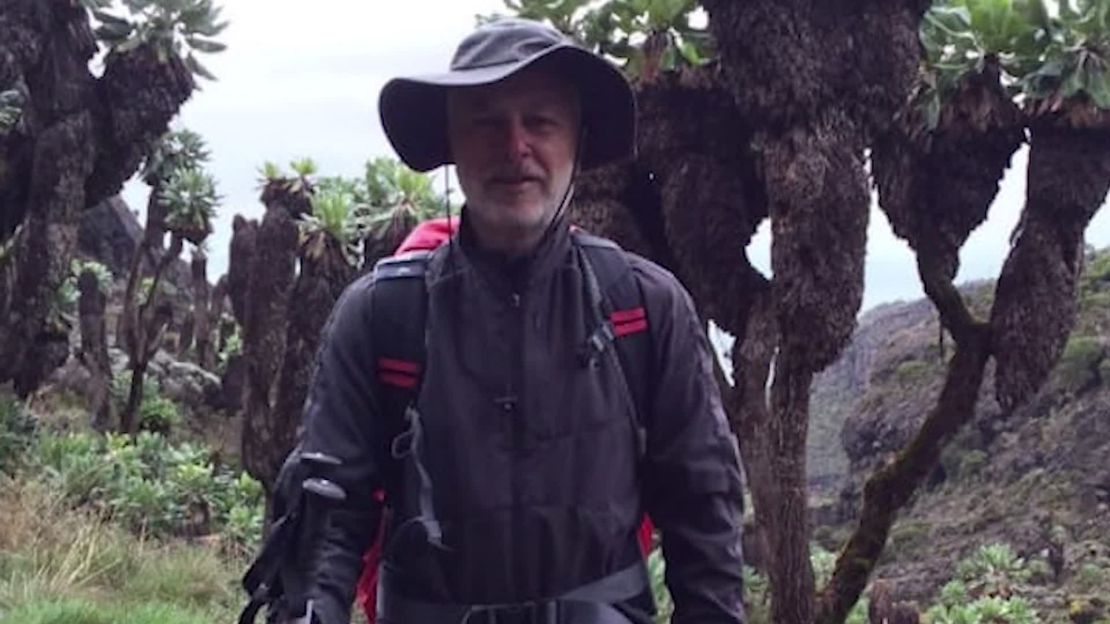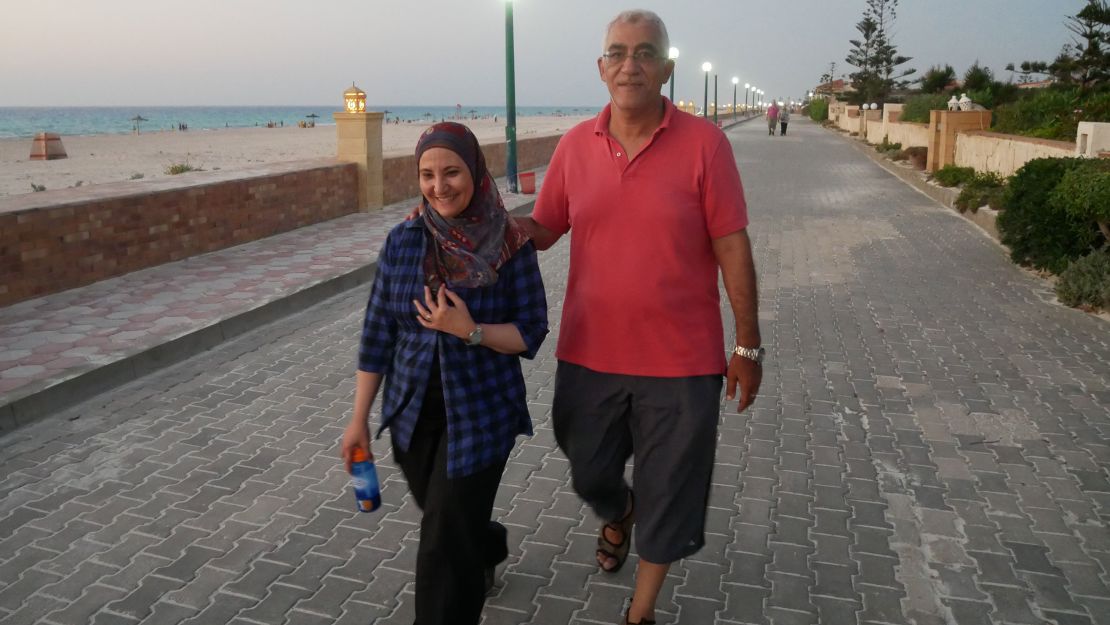Elizabeth Whelan had a packed three-day schedule for her visit to Washington, DC. But it wasn’t a pleasure trip. Whelan’s journey to the nation’s capital – her second this year – had a very serious purpose: to bring attention – and hopefully spur action – to free her brother, Paul, from the Russian prison where he has been detained for over a year.
“I have rather an aggressive meeting schedule because something’s got to get done,” she told CNN.
As it turns out, she wasn’t alone. The families of two other Americans detained abroad were also in the nation’s capital on similar missions – meet with stakeholders, try to raise the profile of each case and learn anything they could to bring their loved ones home.
For many of these families, this work is a tough responsibility to shoulder during a time of sorrow, worry and confusion.
‘There’s nothing good about this situation’

Whelan estimates that she spent “the equivalent of three and a half months last year in DC” over the course of twelve or thirteen trips. She’s come to learn which members of Congress are most likely to meet with her and who on Capitol Hill had the best understanding of her situation.
“I’ve got quite a contact list of people I’ve met with,” she said.
On this particular visit, Whelan had a packed roster of government officials and lawmakers with whom she planned to meet and a neatly designed flyer of steps they could take to help her brother: co-sponsor the Senate resolution “calling on the Government of the Russian Federation to provide evidence or to release United States citizen Paul Whelan,” co-sponsor the Robert Levinson Hostage Recovery and Hostage-Taking Accountability Act in the House or Senate, call or write to US Ambassador to Russia John Sullivan in support of his efforts to free her brother.
He remains in Lefortovo Prison in Moscow, detained on an espionage charge which he denies. The US Embassy in Moscow said he has been denied proper medical care. Elizabeth Whelan said they haven’t spoken to him since he was detained in December 2018. They’re able to send letters but “they’re held by the investigator, the FSB investigator, as a form of coercion against Paul,” she said.
Elizabeth Whelan’s frequent trips to Washington, while important, have not been without a toll.
“This is not something I can afford to do,” Elizabeth Whelan said of her frequent trips to DC on behalf of her brother. “I am an artist. I have to travel from a very small island off the coast of Massachusetts to get down here. It’s expensive, I lose work, I lose momentum in my own business. I’m self-employed. There’s nothing good about this situation.”
“But I am the most flexible of all of my family members and I am good at speaking to people one on one and so this has become my job, just as David is very good at the public spokesperson position and he’s sort of our media guy and our other brother Andrew is a very detail oriented engineer so he’s the behind the scenes, trying to hold the strings of Paul’s life together,” she said.
‘You feel like you’re not alone’

At the same time that Elizabeth Whelan was in Washington DC, Cristina and Dennysse Vadell and Maryam Kamalmaz were also in town.
The Vadells were on their fourth visit to the nation’s capital to speak to stakeholders about Tomeu Vadell, one of the six Citgo executives detained for more than two years without trial in Venezuela. Cristina and her sister, Veronica Vadell Weggeman have been vocal in sharing their concerns about their father’s physical and mental wellbeing. He and the other five men were recently returned to prison from house arrest in Caracas and a hearing was delayed for the nineteenth time.
Maryam Kamalmaz was in Washington for “a packed week” of meetings with State Department officials and congressional lawmakers. She also held a vigil in front of the White House to mark the third anniversary of her father’s disappearance in Syria. Majd Kamalmaz is a Syrian-American therapist who was detained at a checkpoint in Damascus in February 2017. His family hasn’t seen or heard from him since.
The three families did not plan to be in Washington at the same time. They had been in touch virtually, lending words of support on Twitter, but with their common itineraries, some of them got the chance to meet in person. The Vadells met with both Elizabeth Whelan and Maryam Kamalmaz.
“We had not met Elizabeth before in person, but we share experiences and support each other since we all understand what it’s like to have a loved one taken so needlessly,” Cristina Vadell said.
Maryam Kamalmaz said it “was really nice to meet with another family that’s going through a very similar situation as we are.”
“I think there is some comfort talking to these other families because you feel like you’re not alone,” she told CNN.
Margaux Ewen, the executive director of the James Foley Foundation, which advocates on behalf of Americans held hostage or detained abroad, said it was important for the family members “to have someone else who understands what this is like.”

“It’s a really small group of people who really understand what it’s like,” she told CNN.
Like the other loved ones of those detained abroad, Maryam Kamalmaz said her father’s disappearance has taken a heavy toll.
“It’s been really, really, really – like there are no words to describe how difficult it’s been. It’s life changing, in a way, because your life has completely changed, like I’m no longer able to be there completely for my children. It feels like I have to be there trying to figure out what to do next, and how can we get our father home, and constantly thinking of him and worrying about him. So it’s really taken a toll on all of us,” Maryam Kamalmaz said.
‘Nothing has changed with my parent’s situation’
Aayah Khalaf is well-familiar with playing the role of advocate on behalf of her parents – Ola Al-Qaradawi and Hosam Khalaf, both US legal permanent residents who have been detained in Egypt since June 2017.
“I had to travel to DC at least ten times during the past two and a half years,” she told CNN. “I left my kids in here Seattle for the first time, I never really travel without them.”

She’s had success in raising the profile of her parents’ case, particularly on Capitol Hill, through her multiple meetings and trips to Washington. They’ve been mentioned in several hearings, and their names were included in the Senate Appropriations Bill on the conditions of military funding to Egypt.
“Unfortunately, what I’m seeing is that as long as the White House is not intervening and not wanting to intervene on this, it doesn’t move us much. Nothing has changed with my parent’s situation, we weren’t even allowed to visit or get improved conditions or anything,” Aayah Khalaf said.
Aayah Khalaf said she has been unable to get a meeting with White House officials. Her goal is to get the White House to intervene on her parents’ behalf, as they did in the case of Aya Hijazi. CNN has reached out to the White House for comment.
In the meantime, she’s gravely concerned. A US citizen held in Egypt, Mustafa Kassem, died last month, despite his personal pleas to President Donald Trump. Last week, a judge ordered her mother Ola Al-Qaradawi’s release, but the prosecution successfully appealed the decision and her pretrial detention was extended. She has been held in solitary confinement for almost three years. Aayah Khalaf said her mother is “emotionally very, very tired” and “has lost a lot of weight.” The family is able to have almost no correspondence.
“When my parents are almost slowly being killed, I do expect my country and my government and the people here in the US to stand by my side and help me,” she told CNN.




